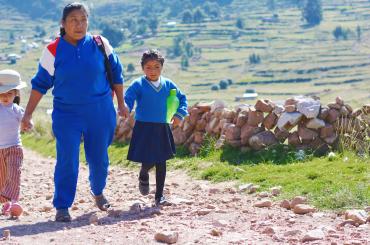

Felipe Barrera-Osorio
Associate Professor of Public Policy, Education, and Economics, Vanderbilt University
Felipe Barrera-Osorio is an Associate Professor of Public Policy, Education, and Economics at the Department of Leadership, Policy, and Organizations at Vanderbilt University.
The aim of Felipe Barrera-Osorio's research is to determine how different educational incentives impact the learning outcomes of primary- and secondary school-aged children in different contexts and levels of education development. He uses identification methods to find causal effects of educational programs in a large array of outcomes. Barrera-Osorio is currently evaluating several interventions that use random assignment, regression discontinuity designs, difference-in-difference, and instrumental variables approaches. His research extends across countries on three continents: Africa, Asia and Latin America. Current projects include interventions that provide students and families incentives to encourage the students to attend and perform better in school.
Felipe Barrera-Osorio holds a Ph.D. in Economics from the University of Maryland, College Park, U.S.A. and a B.A. in Economics from Universidad de los Andes, Bogota, Colombia. Between 2004 and 2006, He was the Deputy Director of the Colombian think-tank Fedesarrollo. Barrera-Osorio moved to the United States in 2006 to work as a senior economist at the World Bank in Washington, D.C. Between 2011 and 2020 he was Assistant and, later, Associate Professor of Education and Economics at the Graduate School of Education, Harvard University. Since July 2020, he joined the Department of Leadership, Policy, and Organizations at Vanderbilt University as an Associate Professor of Public Policy, Education, and Economics, with a secondary appointment (by courtesy) at the Department of Economics. Since 2007 he has been part of the executive committee of LACEA's Impact Evaluation Network, which he helped to create. In 2008, Barrera-Osorio was awarded the Juan Luis Londoño Medal for research in education. The recognition is given every other year to a Colombian economist under the age of 40.
Recent work by Felipe Barrera-Osorio
-

Non-monetary teacher incentives and student learning in Guinea
Public recognition rewards for well-performing public-sector teachers are less effective than in-kind rewards at improving student learning
Published 14.03.22
-

Using information to foster parental engagement in education: Evidence from Colombia
Parents respond to information by increasing their educational investment, but this initial response decays unless report cards are sustained
Published 17.01.22
-

Promoting parental involvement in schools: Evidence from Mexico
Group-based interventions can increase parental engagement in school, change parents’ behaviour at home and improve children’s behaviour in school
Published 11.12.20
-

Hard and soft skills in vocational training: Experimental evidence from Colombia
While technical skills training increases overall employment in the short term, soft skills training increases employment and earnings in the long term
Published 24.08.20
-

The role of disbursement timing in conditional cash transfer programmes: Long-term effects
An experiment in Colombia shows that delaying disbursement of conditional cash transfers can have substantial long-term effects on educational investment
Published 17.10.17